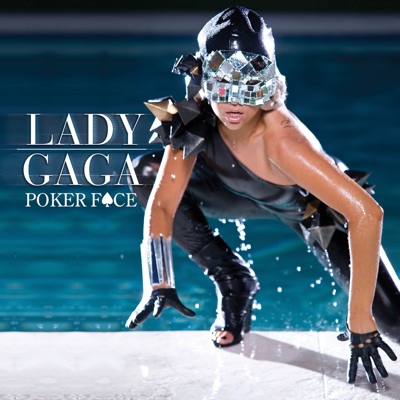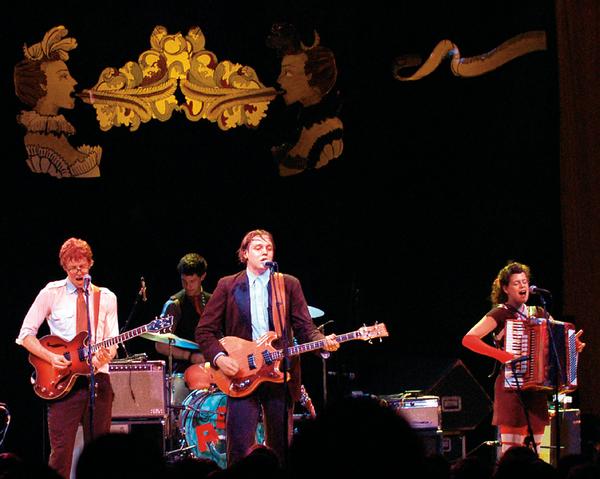Videos by American Songwriter

If you’re a songwriter or artist searching for different ways to sell your music, grow your merchandise business or just looking to try something else, then Ian Rogers is the kind of guy you want to get a meeting with. Formerly with Yahoo Music, Rogers’ marketing ingenuity can be traced back to his work and innovations with the Beastie Boys, where during the 90s, the trouble wasn’t just getting people to the website, it was getting them on the web, and so they distributed a Beastie Boys ISP at shows across the country. Now Rogers is heading up Topspin Media, based in Santa Monica and San Francisco. They’re the creative marketing minds behind the most recent David Byrne/Brian Eno (Everything that Happens Will Happen Today), Arcade Fire (Mirror Noir) and Metric (Fantasies) campaigns. Topspin leverages its platform with each artist to strengthen each artist’s ability to sell directly to fans—a facet of the business where the potential remains untapped on the web. Ian Rogers caught up with American Songwriter over the phone while recovering from a nasty bug to let us in on some of the ways you, as an artist or songwriter, can start growing your business—from running your own online store to managing your e-mail list.
Topspin has worked with some well-established songwriters and artists, yet you also seem in tune with someone who is trying to get their business off the ground.
We are certainly experimenting a lot there.
What are some of the effective strategies you’ve seen in the past that work as far as e-mail marketing, for artists and songwriters who are either building or already have a really good e-mail list?
I think that, not to be overly simplistic, but the obvious thing is offering those people something of value, entering into a meaningful value exchange with these people who are interested in you. Whether it’s through e-mail marketing or some other way that you have a direct connection with that fan, it could be Facebook or Twitter or MySpace or any way that some fan has said “Hey, I am interested in you.” What you really should do is just treat them with respect and offer them something of value. I think that’s all that really matters. There was a great big presentation at NARM by Michael Masnick where he just put up the same simple equation over and over, which was essentially “establish direct connections with your fans, offer them something of value, make money.” He just kept coming back to it. And I think that’s really what it comes down to. Getting people into this mindset where they’re having a conversation with other human beings on the other side rather than “target markets” of major radio markets and this sort of buckshot approach to marketing.
What have you found is something that people are not really responsive to as far as value?
To be honest, I don’t think we’ve spent enough time asking if there’s a variability between if you give somebody a free track versus if you give somebody some streams, because often those are decisions that are driven creatively. What we have done a lot of research on though is certainly giving them something and letting them sample has a really high correlation to sales, and we are trying to do some more studies on that right now. But in the case of David Byrne/Brian Eno, we saw that 20 percent of people who streamed that record bought it. So when we used free giveaways over and over again in that campaign in that, as you said, permission marketing way, to get people in, we then have the ability to turn around and go, “Hey what did you think of it? If you liked it, do you think you wanna take it one step further and actually buy something?” You’ll see a lot of variability based on quality, too, which is probably a good thing. If people sample something and they don’t like it, they shouldn’t buy it. I think the more you give a creative decision because then it doesn’t feel like, “Here’s one of these trinkets that’s the same as all of the other trinkets that all of these artists have given you
Do you see a consistent thread in the clients you’ve worked with that artists should strive for, as far as doing certain things to grow their brand? Number one, obviously, being the quality of their art and their songs. But have there been any other consistent threads with the people you work with?
It’s a really interesting question, and I think on a really basic level, there’s just sort of the overall openness to the new channels, as well as an openness to the fan. And that’s really the more nuanced point there, and I don’t want to overstate it. Let me start with what I think is a much more accurate, general point and then, I’ll say something that I think probably doesn’t apply to all artists, but is an interesting trend. On the general side, it really is all about building direct connections to fans, and doing so proactively. When you look at the number of people we’ve added to the e-mail lists of Byrne/Eno and Metric, for example, it’s phenomenal. But I think that speaks almost more to their lack of proactivity before us than it does to how good we are at it. We were just really proactive about it. We weren’t doing anything that they couldn’t have done. That is something that really sticks out at me…that people have the ability to have a career. If you’re an artist that has a radio hit, and you’re fortunate enough to be in that position, and people are searching for you on Google, and they’re coming to your website, and you’re sending them to iTunes to download your song that might be great, might hit SoundScan and get you more radio play or whatever, but next time, next album… You don’t have the ability to now go back to your audience and say, “I’ve got something new.” iTunes e-mails your audience now every single Tuesday and tells them what’s new. So, I think that’s why that is so crucial. If you look at a David Byrne and Brian Eno or a Metric, they are very fan-focused, but it’s not like they are bloggers and twitterers.
What do you think is next for artists interacting with their fans?
I think the great part of that it is up to artist creativity. I think we like to naturally want to say, “What’s the next format?” Are they going to start selling things on USB? Is it all about the vinyl, the box set? You have the ability to go beyond the one-size-fits-all product. You have to realize, some people, they don’t really have that much money and they want to get the product for free. And some people have plenty of money, and they want to get something extra. And I want to serve them all. The magic is that we’re about to get in a place in the industry where it’s not about, “Make me another track for the radio so I can sell a lot of these things at Best Buy.” It’s about using your creative abilities as an artist to create things that people want.











Leave a Reply
Only members can comment. Become a member. Already a member? Log in.